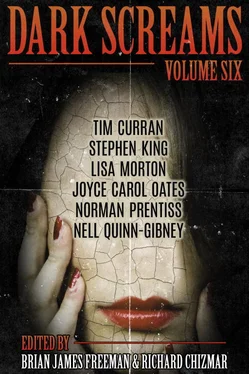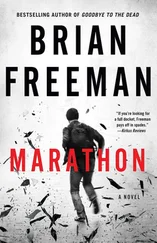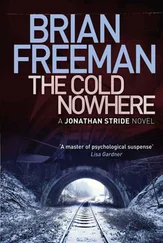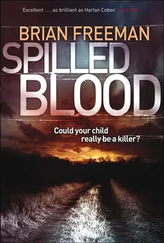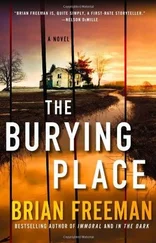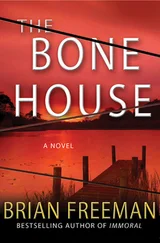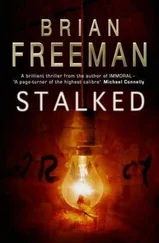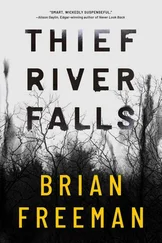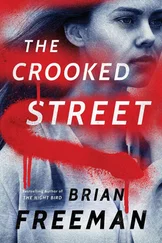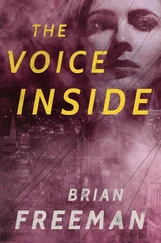“Aye, it has caused me some concern, I reckon. All I wanted as a wee nip was to be a fine doctor in a fine hansom tooling about the city, tending to the sick and impoverished. Being that I only had three years of proper education, the schools would not have me. And now I’m just a poor, lost soul what robs the graves of them what’s passed over.”
Kierney nodded. “Society has conspired against you.”
“I blame me father, who was a worthless drunk and me mother, that silly fat cow. Me old man used to beat me severely about the ears with his fists and I think he knocked something loose up there, he did.”
“Cor, he only used his fists?”
“Unless a fire poker was near, you see.”
“Me old man was the same way,” Kierney explained. “Used a barrel stave on me, he did. How did you think I got so bloody ugly? Was him, I tell you. The old sod. I used to wake each morning with a stream of his vile piss in me face, except on me birthday, when he’d dump the entire chamber pot on me as a gift. It’s with great love and respect that I remember him.”
“Aye, enough, enough, then, Michael Kierney,” Clow said to him. “If you were to peel an onion beneath me nose, I could cry no more.”
“You’re a kind man, Samuel Clow.”
“Off to Surgeon’s Hall with us. Old Dr. Gray said he’d take this beef soon as we got it. Much scientifical work to be done, ye know.”
“Aye.”
They climbed up in the buckboard and passed beneath the arched cemetery gates, each putting his hat to his bosom as they passed the church proper. The sun was coming up and they had to cross the city in broad daylight now. It was dangerous, but for the money it was worth the threat of the swinging rope. As Clem pushed them farther on, Clow repeated an oft-told tale of his mother, who quite often strangled her lodgers and robbed them.
The city was waking up, laborers and tradesmen in the streets now with their wagons and carts. Miners and cotton-spinners. Whores were trudging home, their skirts muddy and their faces grimy. Stray cats were chasing rats in the alleys and dogs were licking the faces of men sprawled drunkenly on boardwalks. It was a hopeless landscape of row houses, tenements, and industrial decay. Tall smokestacks belching black fumes painted the early morning sky with trails of dark brushwork. Chimneys were chugging out coal smoke that settled over the tall houses and narrow streets in blankets of soot. Everything and everyone was grubby, powdered with ash, slopping through the muddy roads.
In the misting gloom, an old lady dressed in rags hovered over a potato brazier, roasting taters for the workingmen who might want something hot on their way to work. Kierney tipped his hat to her and she glared at him, pulled the corncob pipe from her mouth, and spat.
“A fine lady,” Kierney said.
“An angel, to be sure.”
“Oi, look there, Sammy,” Kierney said, the reins limp in his hands. He gestured toward a group of crows picking at the face of a dead man in the gutter. One of them was working his eye from a bloody socket. “They’re having a spot of breakfast.”
“Making me hungry, it is.”
They were just touching the North Grounds the smell of the slaughteryards filling the air and the muddy streets gone red with runoff, when they caught sight of a police watchman in his long brown coat and tall hat… and he caught sight of them. He waved them to a stop with his lantern, setting it down and coming over, gesturing at them with his stave.
“Here, what’s this business about, I ask you,” he said. “What’s this all about?”
“Evening, governor,” Clow said.
“It’s morning, you fool. What’s this business about?”
Clow tipped his hat. “Business, sir? What business be that? Just two law-abiding common laborers we are going about our work.”
The policeman, a big fellow with a face hard enough to hammer iron on, narrowed his eyes, not liking their looks or their smell. “Enough with your cheeky mouth, you skinny bastard… what’s under that tarp?”
Kierney chewed his lip, looked at Clow, who said, “Bodies, sir. A great heaving pile of cadavers, it is.”
“Cadavers?” He rapped the wagon with his stave. “Grave robbers, are you?”
“Perish the thought, sir,” Kierney said, grinning like a clown, averting his eyes from those of the law.
“If it would please you, sir,” Clow said, “them bodies under there, sir, them be the poor unfortunates what perished at the workhouse not two days ago. A tragedy it was, guv, a tragedy.”
“Hop down, you.”
Clow donned his hat and did as he was told. He joined the law at the bed of the wagon. The law glared at him, heavy muscles bristling under the coat. He looked to be a man who enjoyed violence. He walked around the bed of the wagon, yanking aside the sheets and looking down at all the bodies. They lay cheek to jowl, a collection of staring gray faces, shrunken bodies, and limbs thin as pipe cleaners.
“And where would you be taking this lot?” the law said, prodding about the bodies, looking for signs of violence, no doubt. He stroked his heavy mustache. “It’s a rare hour for this sort of work.”
“Aye, sir, it is,” Clow said. “But it’s the preferred hour, being that folks wouldn’t like the idea of a cadaver wagon rolling down the busy streets. These are bound for the North Burial Grounds, poor souls.”
The law seemed to buy that, but still he looked suspiciously about, examining limbs and necks.
“Aye, if you don’t mind me saying, guv, I wouldn’t be a-handling them there dead ones,” Clow warned him. “For the lot perished of the cholera and I wouldn’t want you to bring a drip of that home to your loved ones.”
The law backed up quickly at the mention of it. He dropped his stave and brushed his hands against his coat. He withdrew a handkerchief from his pocket and covered his mouth, for it was a popular belief at the time that disease of all sorts was transmitted by an invisible noxious gas emanating from filth and corpses.
“Cover up them dead ones, you blighter,” Kierney said. “You’re giving the gentleman the horrors, you are.”
“Off with the both of you,” the law said, taking up his stave and jabbing Clow with it. “You both smell of the grave. Off with you and your pestilence, I say.”
“Yes, sir, at once.”
Clow climbed up, took the reins, tipped his hat again.
“Go on, then, you seamy bastard.”
“Yes, sir, and God bless you, sir.”
Off the wagon rolled while the law sought a pump to wash his hands, not realizing he was in more danger from that than from the air he breathed.
“He’s a fine one, that,” Clow said as Old Clem pulled them through the muddy, smelling streets.
“Aye. Reminds me of a toad I once had, looks much like him. The toad was smarter, of course.”
And the wagon rolled on.
6
Long after midnight, the Glasgow High Churchyard was a primeval forest of white marble and gray standing stones, crawling morbid shadows and death angels cobwebbed in mildew. Leaning markers, most worn smooth with age, were crowded in battalions, dripping with fungi and pale moonlight, thrusting at odd angles from the damp earth and rotting vegetation. The trees grew thick and tangled, great black roots jutting from the uneven, moist ground like the arched backs of serpents. A mist that was perfectly white and steaming rose from the earth.
“Lovely place this is you take me, Samuel Clow,” Kierney said. “When I was a nip, we wouldn’t go near here. All them stories… yah… puts the frights to me, it does.”
Clow did not comment on any of it.
He well knew the tales, for he had heard them himself as a boy. The High Churchyard was a macabre pond swum by wraiths and bogeys and shivering, nameless things always looking for boy-meat and girl-meat to pack into their empty bellies. Lost or misguided children, sometimes those on dares, would wade into those black, stillborn waters by the dead of night and disappear without so much as a ripple. Nothing but the scraping of tree limbs overhead and the flutter of bat’s wings to mark their passing.
Читать дальше
